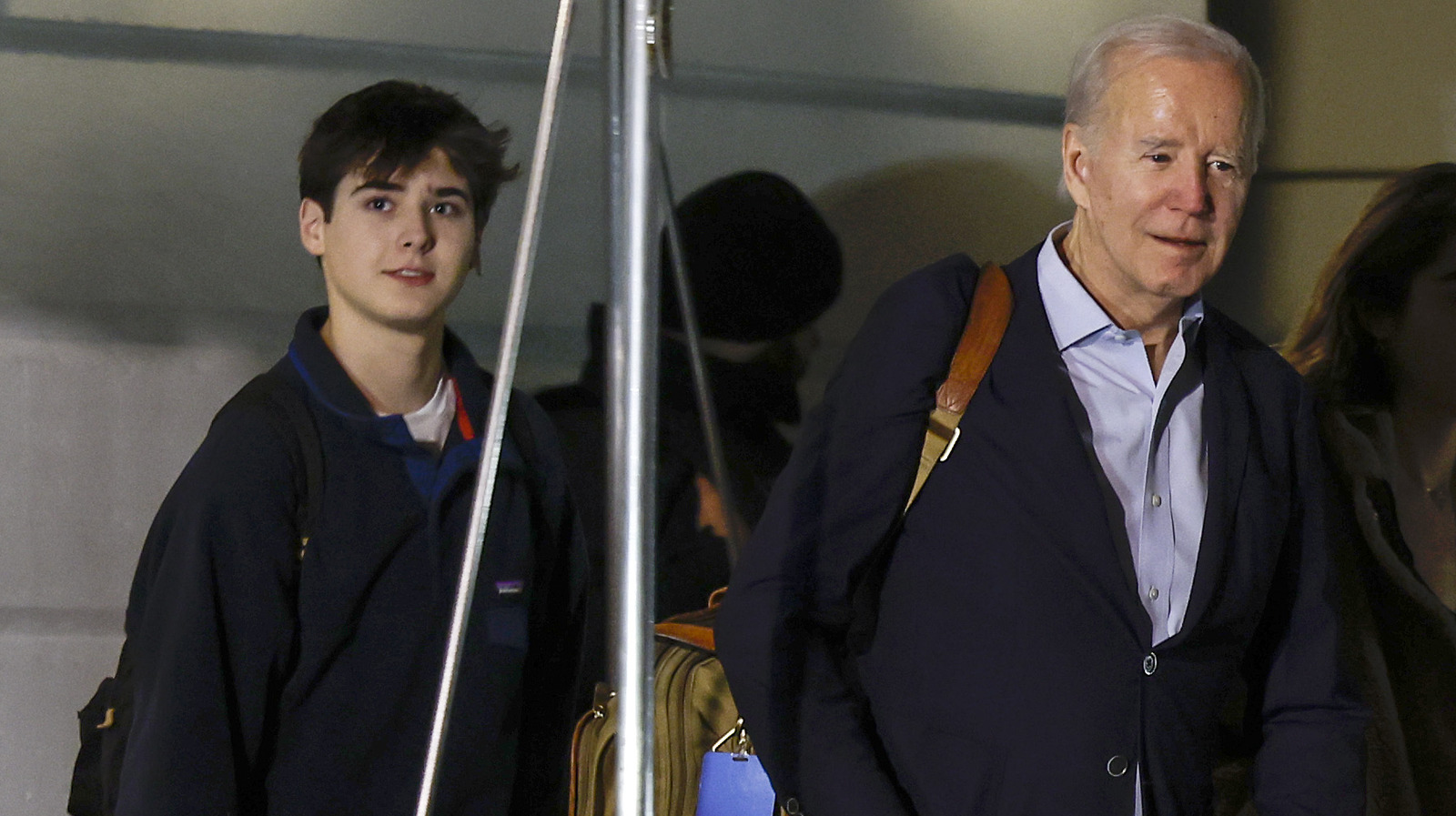When we think about people who catch the public eye, or perhaps those mentioned in various online spaces, it’s interesting to consider how information about them spreads. It's almost as if a person's name, say "Robert Biden II," starts a kind of ripple effect across the internet, leading to all sorts of conversations and shared thoughts. People talk about things that matter to them, and sometimes that includes individuals who are part of a larger public narrative, or perhaps even just someone who sparks a bit of curiosity.
You know, there are so many different places where these discussions happen. From specialized forums dedicated to a particular city or hobby, to broader platforms where all sorts of content lives, our digital lives are really quite full of these exchanges. It’s a bit like a big, sprawling marketplace of ideas, where opinions and facts, or what people believe to be facts, are put out there for everyone to see and react to, in a way.
This article aims to look at how public figures, and indeed any topic that gathers attention, are discussed and perceived in our interconnected world. We'll explore the various ways people engage with content and each other, drawing on some examples of how information is presented and shared across different digital avenues. It’s a pretty fascinating subject, if you ask me, to see how these interactions unfold.
Table of Contents
- What Makes a Public Figure Like Robert Biden II Resonate?
- The Digital Echoes of Robert Biden II's Presence
- How Do Online Communities Shape Our Views?
- Robert Biden II and the Collective Conversation
- Exploring Creative Works and Their Influence
- What Can We Learn from Reviews and Opinions About Figures Like Robert Biden II?
- Where Do We Find Information and Shared Interests?
- Connecting Over Robert Biden II and Other Topics
What Makes a Public Figure Like Robert Biden II Resonate?
When someone's name, like "Robert Biden II," starts to appear in various places, it often means there's a reason people are paying attention. Perhaps they are connected to events, or maybe they simply have a public role that draws notice. It’s a bit like how certain musical artists, for instance, capture the hearts and minds of many listeners. Someone like Robert Plant, for example, is seen by many as a true musical genius, a real idol for some. This kind of admiration, where someone is considered to be in a "master class" and better than anyone else a person has ever heard, shows how deeply an individual can connect with an audience. This kind of feeling, you know, can really make a person or their work stick in our minds.
The way we perceive people is often shaped by the stories and impressions we gather. Whether it's through news, social media, or even just word of mouth, these bits of information come together to form a picture. Sometimes, this picture is quite strong, leading to a sense of admiration or even a feeling that someone is truly exceptional. It’s pretty fascinating, actually, how these personal connections can be built even when we don't know the person directly. The collective view of someone can really build up over time, almost like a shared understanding.
The Digital Echoes of Robert Biden II's Presence
The digital world, in a way, creates a lasting impression of people, including someone like Robert Biden II. Every mention, every discussion, every piece of content that features a name contributes to this larger digital footprint. It’s not just about what a person does, but also about how their actions or connections are talked about across various online spaces. These digital echoes can be found on many different kinds of platforms, making them accessible to a wide audience. For instance, some content is available on Steam, Android, and iOS, showing just how broad the reach can be for anything that captures public interest. This widespread availability helps these echoes travel far and wide, giving many people a chance to engage with the subject matter.
- Grimace Purple
- Dave Portnoy Ex Wife
- Jack Quaid Parents
- College Student Missing In Punta Cana
- William Moseley Movies And Tv Shows
How Do Online Communities Shape Our Views?
Online communities play a really big part in how we come to understand and talk about different topics, including public figures. Think about a subreddit, for example, one that focuses on a specific area like "the rocket city and surrounding area," or another dedicated entirely to "soccer/football." These spaces, you know, are where people with shared interests gather to exchange thoughts, ask questions, and offer their own takes. When a topic like "Robert Biden II" comes up in these kinds of groups, the conversation can take on a particular flavor, shaped by the group's overall perspective and the kinds of members who participate. It's a rather unique way that collective opinions are formed and shared.
These communities act as a sort of filter, too. The way information is presented, the types of questions asked, and the general tone of the discussions all contribute to how a topic is perceived. For instance, if a community generally holds a certain view, new members or casual observers might be influenced by that prevailing sentiment. It's not always about strict facts; sometimes it's about the shared feeling or outlook of the group. This social aspect is a pretty strong force in shaping individual opinions, and that’s a pretty important thing to consider when looking at online interactions.
Robert Biden II and the Collective Conversation
When someone like Robert Biden II becomes a subject of discussion within these communities, it creates a collective conversation that is more than just individual voices. It's a blend of different perspectives, some supportive, some questioning, and some simply curious. These discussions can range from lighthearted chatter to more serious debates, all contributing to the broader narrative around a person or topic. The sheer volume of content, with "today's top content from hundreds of thousands of Reddit communities," shows just how vast and varied these conversations can be. It’s almost like a giant, ongoing dialogue, where everyone can, in a way, contribute their bit to the overall picture.
Exploring Creative Works and Their Influence
Beyond direct discussions about individuals, creative works also play a significant part in shaping how we think about people and stories. Take, for instance, "Invincible," which is an Image Comics and Amazon TV series. This kind of creation, named for its superhero, Invincible (Mark Grayson), shows how fictional characters and their narratives can really capture the imagination. It was brought to life by a writer named Robert Kirkman, working with artists Cory Walker and Ryan Ottley. The way these stories are built, and the impact they have on an audience, can sometimes mirror how real-life figures are perceived. A well-crafted story, you know, has a way of sticking with you, and that’s pretty much true for both made-up tales and real-life accounts.
These creative endeavors often explore themes that resonate with people, whether it’s heroism, struggle, or transformation. The way characters are developed, their strengths and their challenges, can reflect aspects of the human experience that we recognize. It’s a bit like looking at a painting and seeing something familiar, even if the subject is entirely new. The influence of these works extends beyond entertainment; they can spark conversations, inspire new ideas, and even change how we view the world around us. This kind of impact is, in some respects, quite profound, showing the true reach of artistic expression.
What Can We Learn from Reviews and Opinions About Figures Like Robert Biden II?
Reviews and personal opinions offer a very human lens through which we view everything, including public figures like Robert Biden II. When someone says, "Your review is better than" another, it highlights the value placed on individual perspectives and the idea that some insights are more helpful or well-expressed than others. These personal assessments, whether they are about a book, a movie, or a person, provide a rich tapestry of thought. They often contain strong feelings, like when someone declares a musician to be in a "master class" or "better than anybody I've ever heard." These kinds of statements, you know, tell us a lot about the impact a person or their work has on others.
It’s not just about what is being reviewed, but also about the reviewer themselves. Sometimes, we see speculation about identity, like with "Alexandre Robert," where someone imagines it's "not his real name, at least partially," and notes his location in "Quebec, Canada." This kind of thought, about whether a name is real or about where someone is from, shows how people try to piece together information and form a complete picture. It’s a rather natural human tendency to seek out details and try to make sense of things. The combination of strong opinions and attempts to understand identity really helps to paint a picture of how we engage with public information.
Where Do We Find Information and Shared Interests?
Finding information in today's world often means looking in a few different places. For a lot of subjects, including potentially someone like Robert Biden II, there are dedicated resources that gather details and history. For instance, to get "more information, or to see the full schedule for all previous entries," a person might be directed to "the wiki." These wikis are collaborative efforts, built by communities, and they serve as a central point for shared knowledge. They are, in a way, living documents that grow and change as new information becomes available or as community members add their contributions. It’s a pretty neat system for keeping track of things and making them accessible.
Beyond formal information hubs, shared interests also bring people together in less structured ways. A subreddit, for example, might be specifically "for the discussion of soccer/football," creating a space where enthusiasts can connect over a common passion. These kinds of groups aren't just about facts; they're about sharing experiences, opinions, and even just the joy of being part of something bigger. It’s a rather organic way for people to find others who feel the same way about a particular subject, and that can be a very comforting thing.
Connecting Over Robert Biden II and Other Topics
Connecting with others over shared interests, whether it's a sport, a city, or even a public figure like Robert Biden II, is a fundamental part of our online experience. These connections happen on various platforms, from those available on Steam, Android, and iOS, to countless online communities. The sheer volume of "today's top content from hundreds of thousands of Reddit communities" shows just how much discussion is happening out there. People are always looking for places to talk about what matters to them, and these platforms provide the avenues for those conversations to occur. It’s pretty much a constant flow of ideas and interactions, shaping how we all see the world.
These interactions are not always about agreement; sometimes they are about exploration and understanding different viewpoints. The fact that people can discuss someone like Robert Plant as a "musical genius" or share an opinion that "your review is better than" another, highlights the diversity of thought that thrives in these spaces. It’s a bit like a large, ongoing conversation where everyone gets a chance to contribute their piece. This constant exchange of ideas, in a way, enriches our collective understanding of a wide range of topics, from famous people to everyday interests, and that’s a rather valuable aspect of the digital age.
This article has explored how public figures and various topics are discussed in online spaces, drawing on examples of platform availability, community interactions, the impact of creative works, and the role of personal opinions. We looked at how digital echoes form, how online groups shape our views, the influence of reviews, and where people find information and shared interests.


